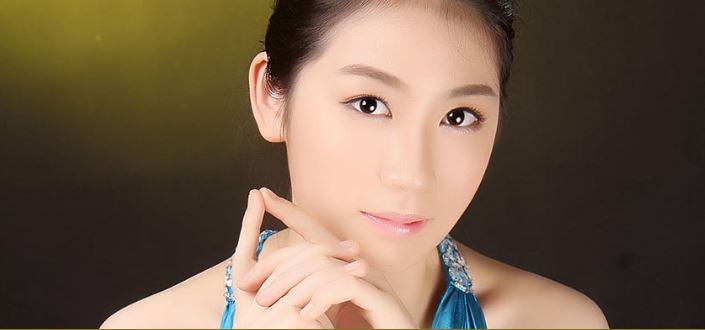2018 Gilmore Young Artist Award winner Wei Luo impressed yet another Gilmore audience on Saturday night, this time accompanied by the Battle Creek Symphony Orchestra at W.K. Kellogg Auditorium in downtown Battle Creek.
The BCSO's program featured a performance of Nikolai Rimsky-Korsakov's “Russian Easter Overture, Op. 36, ” followed by a piece by Rachmaninoff on which Luo was the featured guest pianist. After an intermission, the Orchestra closed out the night (sans piano) with a performance of “Symphony No. 8 in G Major” by Antonin Dvořák.
The tone of the evening was jubilant from start to finish. Under the enthusiastic direction of Anne Harrigan, the Orchestra began the concert with the “Russian Easter Overture.” Despite it being a month past Easter, the joyous highs of the bells and the reverent lows of the bass and the low brass recalled shaking off the last shreds of winter and welcoming the first few warm days of spring—a ritual that we're still enjoying here in southwest Michigan.
The pièce de résistance was Luo's guest performance of Sergei Rachmaninoff's “Rhapsody on a Theme of Paganini.” Right from the start, Luo's presence was commanding; her forceful dynamics and the seeming ease with which she soared through technically challenging sections of the piece made it almost impossible to look away from her. She masterfully played both loud, intense phrases and softer, gentler melodies, but she was clearly in her element while working through frenzied, difficult sections, and the “Rhapsody” gave her plenty of opportunities to showcase her affinity and talent for intense and challenging music.
The performance was at its most enjoyable when Luo's piano and her accompanying Orchestra were in conversation with one another, allowing them each to shine in their own right. “Rhapsody on a Theme of Paganini” features 24 variations on Paganini's “Caprice No. 24 in A minor,” and during the first few variations Luo and the Orchestra conversed and accented each other delightfully. Toward the middle of the piece, as the two began to play more in unison, the piano seemed to blend in and became difficult to distinguish at times.
By the final variation Luo was back in the metaphorical spotlight, having shown her her wide range of dynamic ability and returning to the intricate, forceful playing that she does so well. She flew through unbelievably complicated arpeggios and syncopations, eliciting gasps and grins from the audience. She finished with flair and gleefully hugged Harrigan as she received an immediate standing ovation.
After the intermission, I was disappointed to see that the piano had disappeared from the stage, as I had been secretly hoping that Luo would return to play for us again. Instead, the Orchestra launched immediately into a joyful rendition of Dvořák's “Symphony No. 8 in G Major.” The selection was familiar and its cheerful nature felt seasonally appropriate, if not a little predictable.
Harrigan kept the performance interesting as she swayed along with the music, excitedly gesturing to individual players, seemingly daring them to rise to her level of enthusiasm. The 36-minute “Symphony” performance ended in a triumphant crescendo that saw the Orchestra summon more intensity than they had all night. They, too, received a standing ovation as Harrigan encouraged nearly every section of the orchestra to stand and bow.
Saturday's concert was Luo's final appearance at the Gilmore Keyboard Festival; it also marked the finale of the 119th season of the BCSO, one of the longest-running orchestras in the state of Michigan.
Battle Creek Symphony and Wei Luo
May 5
thegilmore.org





